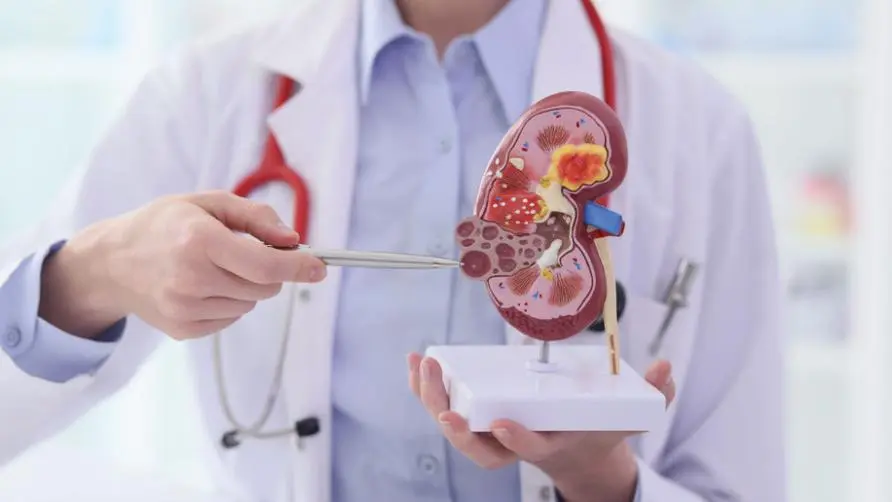Drowsiness, bloating, and joint pain are due to heavy moisture! Traditional Chinese medicine reveals 5 "bad habits" that cause moisture stasis

Days of rain aggravate the humidity, causing loss of appetite and lethargy. Beware of dampness.
This year’s Dragon Boat Festival coincides with the “most complete and typical” rainy season in the past 20 years. Days of rain can easily cause physical problems in sensitive groups, with symptoms such as depression and depression, which usually return to normal when the weather clears. However, some ethnic groups will experience dizziness, heaviness and weakness, loss of appetite, and lethargy, which affects their daily life. Chinese medicine practitioners remind you not to be careless when you have similar physical conditions. Be careful because “dampness evil” affects your health.
Chinese medicine practitioner Su Yingci said that “dampness” refers to moisture, and the moisture stagnated in the body is a pathological product of abnormal water metabolism. In traditional Chinese medicine, water metabolism is related to the functions of the lungs, spleen, and kidneys, and is most closely related to the spleen. Many abnormal water metabolism in everyone may be related to spleen disorders. Therefore, people with “spleen deficiency” are more likely to have spleen disorders. The problem of moisture stopping and gathering.
Spleen abnormality may also cause excessive moisture in the body? Chinese medicine practitioner Su Yingci pointed out that “dampness evil” can be divided into exogenous dampness and endogenous dampness. Exogenous dampness refers to a rainy or humid climate environment, such as the rainy season that has just ended. This kind of climate environment is more likely to make people with weak righteousness or excessive dampness feel uncomfortable and even cause pathological reactions; internal dampness is caused by physiological dysfunction of the spleen. , a pathological state caused by water stasis in the body. Usually the two have common characteristics and influence each other.
5. Bad habits aggravate the moisture in the body and easily cause edema, leucorrhea and joint pain.
“Su Wen Zhi Zhen Yao Da Lun” of traditional Chinese medicine states: “All dampness, swelling and fullness belong to the spleen.” This means that the spleen is the main digestive organ and has the function of transporting water and dampness. When food is digested by the spleen and its digestive system, it is converted into qi, blood, and body fluids and circulates throughout the body. Part of the water is transported to the lungs. The lungs transport the water to the surface of the muscles through the process of sweating, and the moisture is discharged through the process of sweating.
The other part of the water is transported to the kidneys through ablation, and the moisture is excreted through urination. When the spleen is dysfunctional and coupled with the humid climate in Taiwan, external dampness causes internal dampness, which is even more difficult to eliminate during the rainy season.
When the environment is full of rain and your daily routine and eating habits are abnormal, moisture problems are more likely to be aggravated. Su Yingci, a Chinese medicine practitioner, said that people who eat too much raw, cold or spicy food, lack exercise, lose weight improperly, drink alcohol, and have poor sleep are prone to spleen deficiency and moisture stasis. Severe symptoms may include abdominal distension, diarrhea, nausea, and dizziness. , edema, female leucorrhea, eczema, joint pain and other conditions.
Pay attention to your physical condition when eating dehumidifying foods. Exposure of tea drinks with diuretic and antipyretic ingredients
Su Yingci, a Chinese medicine practitioner, pointed out that over time, dampness will affect the circulation of qi, blood, and body fluids in the body, leading to the accumulation of fat, blood sugar, uric acid and other waste products, which can easily lead to diabetes, gout, thrombosis, dyslipidemia, and central obesity (protruding belly, thick waist, etc.) The impact of metabolic diseases such as visceral fat accumulation due to metabolic disorders on health cannot be underestimated.
Adjusting your diet is one of the ways to help eliminate moisture. Su Yingci, a Chinese medicine practitioner, suggests that you can eat foods that are good for eliminating moisture according to your body type, such as barley, mung beans, winter melon, white radish, bitter melon, etc. However, these foods tend to be cold. , Cold body and pregnant women should not eat too much. Neutral ones such as red beans can be boiled into sugar-free red bean water for drinking. Pungent and warm properties such as ginger can also help eliminate moisture, but those with yin deficiency and internal heat should consume them in moderation.
Su Yingci, a Chinese medicine practitioner, pointed out that you can drink tea that can relieve dampness and relieve heat, such as adzuki bean, poria, pearls, coix, codon root, astragalus, licorice, cassia, tangerine peel and other ingredients, which can be consumed daily. Helps maintain the body.
At the same time, it is also recommended to maintain a good work and rest, a balanced diet and appropriate exercise, and sweat appropriately to help discharge moisture and help improve the symptoms of discomfort caused by excessive moisture.
Further reading:





